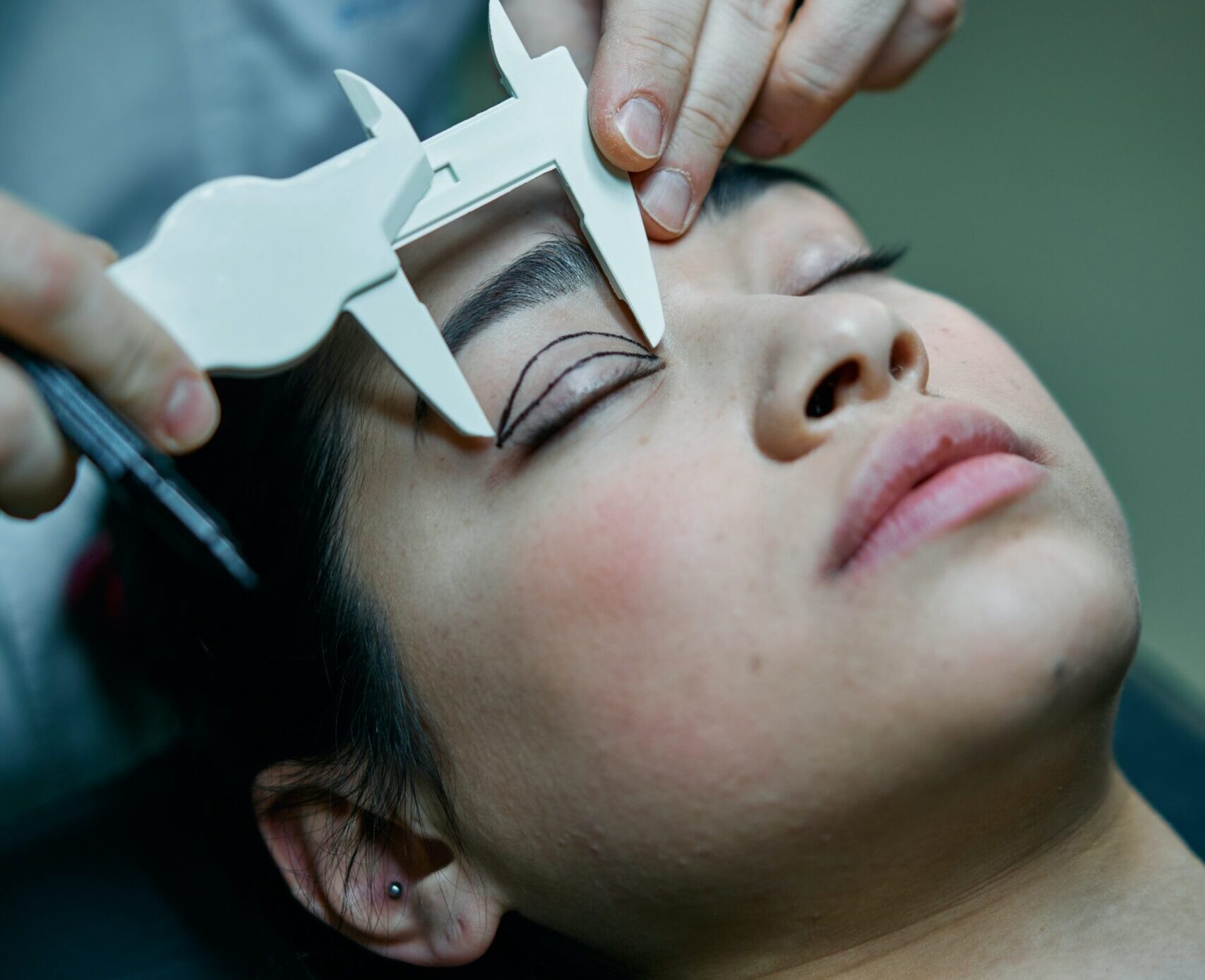Best Plastic Surgeon SEO Company | Plastic Surgery Search Engine Optimization Done Right.
Search engine optimization is a must-have for cosmetic surgery businesses today and we are here to help you. Many people try to do this on their own and it can be a very difficult process. We offer a complete suite of services including full-service search engine optimization, content marketing, content creation and more.



High-Performance SEO

Skilled SEO Agency

Expert Digital Marketers
We Are The Best Choice For Cosmetic Surgery Businesses That Need the Best SEO Company


Top Search Engine Optimization Company for Plastic Surgeon Clinics
You Need The Best Plastic Surgeon SEO To Thrive

Elite Search Engine Optimization Services, Best SEO Company For Plastic Surgeons.
We are professional plastic surgery marketing experts who are passionate about helping plastic surgeons improve their search engine optimization. If you’re looking for a company that specializes in all aspects of search engine optimization, and can help you get your business to the top of Google, look no further. We provide a range of services including comprehensive search engine optimization, organic internet marketing, link building, content writing and more.

How can SEO benefit plastic surgeons in terms of increasing online visibility and attracting more potential patients?
In today's digital age, plastic surgeons are presented with a unique opportunity to increase their online visibility and attract a broader audience of potential patients. With the growing popularity of internet search engines, search engine optimization (SEO) has become a vital strategy for plastic surgeons to enhance their online presence and connect with individuals seeking aesthetic solutions. In this section, we will explore the key ways in which SEO can benefit plastic surgeons, empowering them to expand their reach, establish credibility, and attract more qualified patients.
Increased Online Visibility
Effective SEO techniques can significantly improve a plastic surgeon's online visibility, making it easier for potential patients to find them when searching for relevant services. By optimizing their website with targeted keywords, engaging content, and technical optimizations, plastic surgeons can rank higher in search engine results pages (SERPs). This increased visibility ensures that their practice appears prominently in search queries related to specific procedures or services they offer.
Targeted Audience Reach
SEO allows plastic surgeons to target specific demographics and geographic locations, ensuring their services are visible to the right audience. By incorporating location-specific keywords and optimizing their Google My Business listing, plastic surgeons can attract patients searching for local providers. This targeted approach helps focus marketing efforts on individuals who are more likely to convert into patients, maximizing the return on investment.
Building Trust and Credibility
In the field of plastic surgery, trust and credibility are paramount. A well-executed plastic surgery SEO strategy can contribute to establishing a positive online reputation for plastic surgeons. By consistently publishing high-quality, informative content, such as blog posts, articles, and patient testimonials, surgeons can position themselves as trusted authorities in their field. This not only boosts their credibility but also helps build trust with potential patients who are researching their options.
Showcasing Expertise with Content Marketing
Content marketing plays a crucial role in SEO for plastic surgeons. By creating informative and engaging content that addresses common questions, concerns, and trends in the field of plastic surgery, surgeons can attract organic traffic to their website. Valuable content can take various forms, including blog posts, educational videos, infographics, and before-and-after galleries. This not only provides valuable information to potential patients but also demonstrates the surgeon's expertise and commitment to patient education.
Mobile-Friendly Experience
In the digital era, a significant portion of online searches occurs on mobile devices. Therefore, having a mobile-friendly website is essential for plastic surgeons. Search engines prioritize mobile-friendly websites in their rankings, and a responsive design ensures a seamless user experience across devices. This allows potential patients to access vital information, view galleries, and contact the practice easily, increasing the chances of conversion.
Local SEO for Plastic Surgeons
Local SEO is particularly crucial for plastic surgeons, as patients often seek providers in their immediate vicinity. Optimizing for local search involves incorporating location-specific keywords, ensuring accurate contact information on all online platforms, and acquiring positive reviews from satisfied patients. Local SEO strategies enhance visibility within the local community and increase the likelihood of attracting qualified leads who are more likely to convert into patients.
Leveraging Social Media for SEO
Social media platforms provide plastic surgeons with additional channels to showcase their expertise and engage with potential patients. By incorporating social media marketing into their SEO strategy, surgeons can amplify their reach, share valuable content, and connect with individuals seeking aesthetic solutions. Platforms like Facebook, Instagram, and YouTube offer opportunities to share before-and-after photos, educational videos, patient testimonials, and Q&A sessions, fostering trust and driving traffic to their website.
Conclusion
In the digital age, plastic surgery SEO has become an indispensable tool for plastic surgeons seeking to increase their online visibility, attract more potential patients, and establish credibility in the field. By implementing effective plastic surgery SEO strategies, including targeted keyword optimization, content marketing, mobile optimization, and local SEO techniques, plastic surgeons can enhance their online presence and connect with individuals actively searching for their services. Investing in SEO not only boosts visibility but also helps build trust, credibility, and a strong online reputation. By leveraging the power of SEO, plastic surgeons can thrive in the competitive landscape, expand their patient base, and make a positive impact on the lives of individuals seeking aesthetic transformations.
What are the key strategies and best practices for optimizing a plastic surgeon's website for search engines?
In the highly competitive world of plastic surgery, having a strong online presence is essential for attracting and converting potential patients. One of the most effective ways to achieve this is through search engine optimization (plastic surgery SEO). By optimizing a plastic surgeon's website for search engines, it becomes more visible to individuals actively seeking aesthetic solutions. In this section, we will uncover the key strategies and best practices for optimizing a plastic surgeon's website to improve search engine rankings and increase online visibility.
Conduct Comprehensive Keyword Research
Keyword research is the foundation of any successful plastic surgery SEO strategy. It involves identifying the relevant keywords and phrases that potential patients use when searching for plastic surgery services. By understanding the search intent behind these keywords, plastic surgeons can optimize their website's content to match those queries. Tools like Google Keyword Planner, SEMrush, and Moz Keyword Explorer can assist in finding high-value keywords with reasonable search volume and low competition.
Develop High-Quality and Relevant Content
Creating high-quality, informative, and engaging content is crucial for optimizing a plastic surgeon's website. Content should be tailored to address the needs and concerns of potential patients. By producing comprehensive blog posts, articles, and educational resources, plastic surgeons can position themselves as authorities in their field and attract organic traffic to their website. Incorporate the identified keywords naturally throughout the content to increase relevancy and optimize for search engine algorithms.
Optimize On-Page Elements
Optimizing on-page elements is an essential part of website optimization. Start by optimizing the meta tags, including title tags and meta descriptions, to provide concise and compelling information that encourages clicks from search engine results. Incorporate relevant keywords in these tags, ensuring they accurately reflect the content on each page. Additionally, optimize headings (H1, H2, etc.) to provide a clear structure and improve readability.
Enhance Website Speed and Performance
Website speed and performance are critical factors that influence search engine rankings and user experience. Slow-loading websites lead to higher bounce rates and lower engagement. Optimize website speed by compressing images, leveraging browser caching, and minimizing code and script files. Regularly monitor website performance using tools like Google PageSpeed Insights or GTmetrix, and address any identified issues promptly.
Implement Responsive Design for Mobile Optimization
With the significant increase in mobile device usage, having a mobile-friendly website is crucial for plastic surgeons. Responsive design ensures that the website adapts seamlessly to different screen sizes and resolutions, providing an optimal user experience across devices. Mobile optimization not only improves search engine rankings but also enhances user engagement and reduces bounce rates.
Leverage Local SEO Strategies
For plastic surgeons, targeting the local market is often crucial. Implementing local SEO strategies can help increase visibility within the specific geographic area served. Ensure accurate and consistent information across all online directories and platforms, including the practice name, address, and phone number (NAP). Claim and optimize the Google My Business listing, encourage patient reviews, and leverage local keywords to boost local search rankings.
Build High-Quality Backlinks
Building high-quality backlinks is a powerful strategy to enhance a plastic surgeon's website authority and search engine rankings. Focus on acquiring backlinks from reputable and relevant sources, such as medical associations, industry directories, and trusted websites. Content marketing, guest blogging, and building relationships with influencers can help generate quality backlinks naturally.
Monitor, Analyze, and Adapt
Regularly monitor and analyze website performance using tools like Google Analytics. Track key metrics such as organic traffic, bounce rate, conversion rates, and keyword rankings. This data provides valuable insights into the effectiveness of plastic surgery SEO efforts and helps identify areas for improvement. Make data-driven decisions, adapt strategies as necessary, and stay updated with the latest SEO trends and algorithm changes.
Conclusion
Implementing effective plastic surgery SEO strategies is essential for plastic surgeons looking to increase their online visibility, attract potential patients, and thrive in a competitive digital landscape. By conducting comprehensive keyword research, developing high-quality content, optimizing on-page elements, enhancing website speed and performance, implementing responsive design, leveraging local SEO strategies, building high-quality backlinks, and monitoring performance, plastic surgeons can optimize their websites for search engines and achieve sustainable growth. Remember, SEO is an ongoing process that requires continuous effort and adaptation to stay ahead of the competition and connect with individuals seeking transformative aesthetic solutions.
How important is local SEO for plastic surgeons, and what steps can be taken to target patients in specific geographic areas?
In the competitive landscape of plastic surgery, attracting local patients is vital for the success of a practice. This is where local search engine optimization (SEO) plays a crucial role. By implementing effective local SEO strategies, plastic surgeons can enhance their online visibility, increase their chances of reaching potential patients in specific geographic areas, and ultimately grow their practice. In this section, we will explore the importance of local SEO for plastic surgeons and outline the key steps that can be taken to target patients in specific geographic areas.
Understanding the Importance of Local SEO for Plastic Surgeons
Local plastic surgery SEO focuses on optimizing a website to appear in search results for location-specific queries. For plastic surgeons, local SEO is highly important because most patients prefer to seek treatment from professionals in their vicinity. When potential patients search for plastic surgery services in their local area, a well-optimized website with a strong local SEO presence can help a plastic surgeon stand out from the competition and attract local patients.
Claim and Optimize Your Google My Business Listing
Google My Business (GMB) is a powerful tool for local plastic surgery SEO. It allows plastic surgeons to create a business listing that appears in Google's local search results and Google Maps. Start by claiming and verifying your GMB listing, ensuring that all information is accurate, including your practice name, address, phone number (NAP), business hours, and website URL. Optimize your listing by providing a detailed description of your services, adding high-quality photos, and encouraging patients to leave reviews.
Consistent NAP Information Across Online Directories
Consistency is key when it comes to local plastic surgery SEO. Ensure that your practice's name, address, and phone number (NAP) are consistent across all online directories, including your website, social media profiles, and local business directories. This consistency signals to search engines that your information is accurate and trustworthy, improving your local search visibility.
Target Local Keywords in Website Content
To target patients in specific geographic areas, incorporate local keywords into your website's content. Include the name of your city, neighborhood, or region in key areas such as page titles, headings, meta descriptions, and throughout the body of your content. For example, instead of using generic terms like "plastic surgeon," consider optimizing for "plastic surgeon in [city/neighborhood]."
Create Location-Specific Landing Pages
Developing location-specific landing pages can significantly boost your local SEO efforts. Create dedicated pages on your website that highlight your services in different areas you want to target. Each landing page should include relevant local keywords, unique content that speaks to the specific needs of patients in that area, and testimonials or case studies from patients in that location.
Generate Positive Online Reviews
Online reviews play a critical role in local SEO and building trust with potential patients. Encourage your satisfied patients to leave reviews on platforms such as Google, Yelp, and Healthgrades. Respond to reviews, whether positive or negative, in a professional and timely manner. Positive reviews not only improve your local search rankings but also act as powerful social proof for potential patients.
Leverage Local Content and Community Involvement
Creating local content and getting involved in the community can further strengthen your local SEO efforts. Write blog posts or articles that highlight local events, news, or initiatives related to plastic surgery. This not only demonstrates your expertise but also positions your practice as a trusted authority within the community. Consider sponsoring local events or partnering with local organizations to increase your visibility and generate local backlinks.
Monitor and Analyze Your Local SEO Performance
Regularly monitor and analyze your local SEO performance using tools like Google Analytics and Google Search Console. Track metrics such as local search rankings, website traffic, and user engagement. Analyze the data to identify areas for improvement and make data-driven decisions to optimize your local SEO strategy continually.
Conclusion
Local plastic surgery SEO is a game-changer for plastic surgeons looking to target patients in specific geographic areas. By claiming and optimizing your Google My Business listing, ensuring consistent NAP information, targeting local keywords, creating location-specific landing pages, generating positive online reviews, leveraging local content, and monitoring performance, you can enhance your online visibility, attract more local patients, and grow your practice. Remember, local SEO requires ongoing effort and adaptation to stay ahead of the competition and connect with patients in your target geographic areas. Embrace the power of local SEO and unlock the potential for sustainable growth in your plastic surgery practice.
Are there specific keywords or phrases that plastic surgeons should target to improve their organic search rankings and attract relevant traffic?
In the competitive world of plastic surgery, having a strong online presence is crucial for attracting potential patients. One effective way to improve your visibility and attract relevant traffic is through search engine optimization (plastic surgery SEO). A key aspect of plastic surgery SEO is targeting the right keywords or phrases that align with your services and resonate with your target audience. In this section, we will explore specific keywords and phrases that plastic surgeons should target to improve their organic search rankings and attract relevant traffic to their websites.
Conduct Keyword Research
Effective keyword targeting starts with comprehensive keyword research. Begin by brainstorming the core services and treatments you offer as a plastic surgeon. Think about the specific procedures, such as breast augmentation, rhinoplasty, or facelifts, that are popular among your target audience. Use keyword research tools like Google Keyword Planner, SEMrush, or Ahrefs to identify relevant keywords and phrases with high search volumes and manageable competition.
Long-Tail Keywords
Long-tail keywords are longer, more specific keyword phrases that typically have lower search volumes but higher intent. These keywords often indicate that the user is further along in the decision-making process and more likely to convert into a patient. For example, instead of targeting the broad keyword "plastic surgeon," consider incorporating long-tail keywords like "best plastic surgeon for breast augmentation in [city]" or "top-rated rhinoplasty specialist near me." Long-tail keywords help you reach a more targeted audience and improve the quality of traffic to your website.
Local Keywords
As a plastic surgeon, targeting local keywords is essential for attracting patients in your specific geographic area. Incorporate location-specific keywords into your content to capture local search traffic. For instance, include phrases like "plastic surgeon in [city/region]" or "cosmetic surgery clinic near [neighborhood]." Optimizing your website for local keywords will help you rank higher in local search results and attract patients who are actively seeking plastic surgery services in their area.
Procedure-Specific Keywords
To attract patients looking for specific procedures, it's crucial to target procedure-specific keywords. Identify the most sought-after procedures in your field and create content that targets those keywords. For example, if you specialize in breast augmentation, incorporate keywords like "breast augmentation surgery," "breast implant options," or "breast augmentation recovery." By targeting procedure-specific keywords, you increase the likelihood of attracting qualified leads who are actively researching and considering those procedures.
Educational Keywords
Many individuals considering plastic surgery are in the research phase, seeking information and answers to their questions. Targeting educational keywords allows you to provide valuable content that addresses their concerns and positions you as an authority in the field. Incorporate keywords like "plastic surgery guide," "what to expect during [procedure]," or "risks and benefits of [procedure]" into your content. By offering informative and educational content, you not only improve your search rankings but also build trust and credibility with potential patients.
Reviews and Testimonials Keywords
Positive reviews and testimonials are powerful social proof that can influence potential patients' decisions. Incorporate keywords related to reviews and testimonials into your content to attract patients looking for feedback and experiences from previous patients. For instance, include keywords like "patient testimonials for breast augmentation," "plastic surgeon reviews," or "top-rated cosmetic surgery clinic." By highlighting the positive experiences of your satisfied patients, you can differentiate yourself from competitors and establish trust with your audience.
Stay Updated with Evolving Trends
The field of plastic surgery is constantly evolving, and new procedures, techniques, and trends emerge over time. Stay updated with the latest advancements in the industry and adapt your keyword targeting accordingly. Monitor popular trends, innovative procedures, and emerging technologies, and incorporate relevant keywords into your content. By staying ahead of the curve, you can position yourself as a leading plastic surgeon in your niche and attract patients who are seeking the latest and most effective treatments.
Conclusion
Targeting the right keywords and phrases is vital for improving organic search rankings and attracting relevant traffic to your plastic surgery website. Conduct comprehensive keyword research, focus on long-tail and local keywords, target procedure-specific and educational keywords, incorporate reviews and testimonials, and stay updated with evolving trends. By implementing these strategies and optimizing your content, you can enhance your online visibility, reach a highly targeted audience, and increase the likelihood of attracting qualified leads who are actively seeking the plastic surgery services you offer. Remember, effective keyword targeting is an ongoing process, so regularly review and refine your keyword strategy to stay ahead in the competitive landscape of plastic surgery marketing.
What role does content marketing play in plastic surgeon SEO, and how can surgeons create informative and educational content to engage with potential patients?
In the competitive field of plastic surgery, establishing a strong online presence is essential for attracting and engaging potential patients. One of the most effective strategies for improving your search engine optimization (SEO) and connecting with your target audience is through content marketing. In this section, we will explore the significant role that content marketing plays in plastic surgeon SEO and discuss how surgeons can create informative and educational content to engage with potential patients.
Providing Value through Informative Content
Content marketing is all about providing value to your audience. As a plastic surgeon, your content should aim to educate and inform potential patients about various procedures, treatment options, pre- and post-operative care, and other relevant topics. By offering valuable information, you position yourself as an authority in the field and build trust with your audience.
Understanding Your Target Audience
To create content that resonates with potential patients, it is crucial to understand your target audience. Conduct thorough research to identify their demographics, preferences, concerns, and questions related to plastic surgery. This knowledge will guide your content creation process and enable you to address their specific needs effectively.
Blogging: The Power of Informative Articles
Maintaining a blog on your website is an excellent way to regularly publish informative articles that engage potential patients. Consider topics such as "Common Myths about Plastic Surgery Debunked," "Understanding Different Breast Augmentation Techniques," or "Recovery Tips for a Smooth Rhinoplasty Journey." These articles should be well-researched, evidence-based, and provide practical insights that potential patients can benefit from.
Video Content: Engaging Visual Experiences
In addition to written content, incorporating video content into your strategy can significantly enhance patient engagement. Videos allow you to visually demonstrate procedures, share patient testimonials, and provide educational information in an engaging format. Platforms like YouTube and Instagram offer opportunities to showcase your expertise and connect with a wider audience.
Case Studies and Before-and-After Galleries
Case studies and before-and-after galleries are powerful tools to showcase your expertise and the results you have achieved for your patients. Highlight successful procedures and include detailed descriptions of the patient's journey, including their goals, the procedure itself, and the outcomes. This content demonstrates your skills and helps potential patients envision the possibilities for their own transformations.
Search Engine Optimization (SEO) for Content
To maximize the visibility of your content, it is essential to optimize it for search engines. Incorporate relevant keywords naturally throughout your content, including in headings, subheadings, and meta tags. Conduct keyword research to identify the terms and phrases potential patients are likely to search for, ensuring that your content aligns with their queries.
Engaging with Your Audience
Content marketing provides an opportunity for two-way communication with potential patients. Encourage comments, questions, and feedback on your blog posts and social media platforms. Respond promptly and thoughtfully to foster engagement and build relationships with your audience.
Sharing on Social Media
Utilize social media platforms such as Facebook, Instagram, and Twitter to share your informative content. Tailor your posts to each platform's format and audience preferences, and provide snippets or teasers that encourage users to click through to your website for more information. Social media sharing expands your reach and enables your content to be shared among networks, increasing your visibility and potential patient engagement.
Collaborating with Influencers and Industry Experts
Partnering with influencers and industry experts can amplify the reach and credibility of your content. Collaborate with reputable influencers, bloggers, or journalists who specialize in the healthcare or beauty industry. They can feature your content, share their experiences, or provide expert commentary, increasing your content's exposure and attracting a wider audience.
Conclusion
Content marketing plays a crucial role in plastic surgeon SEO by providing valuable information, engaging potential patients, and building trust. By creating informative and educational content, such as blog articles, videos, case studies, and before-and-after galleries, you can connect with your target audience and establish yourself as a knowledgeable and trusted authority in the field. Incorporating plastic surgery SEO best practices, engaging with your audience, and leveraging social media platforms will further enhance the visibility and impact of your content marketing efforts. Remember, the key to successful content marketing is to consistently deliver valuable information that addresses the needs and concerns of potential patients, fostering meaningful connections and driving engagement.
How can plastic surgeons effectively utilize patient reviews and testimonials to enhance their SEO efforts and build trust with potential patients?
In the world of plastic surgery, building trust and credibility with potential patients is crucial. One powerful tool that can significantly contribute to these efforts is patient reviews and testimonials. In this section, we will explore how plastic surgeons can effectively utilize patient reviews and testimonials to enhance their plastic surgery SEO efforts and build trust with potential patients.
The Importance of Patient Reviews and Testimonials
Patient reviews and testimonials serve as powerful social proof, offering prospective patients insight into the experiences of others who have undergone plastic surgery procedures. They provide an unbiased perspective, highlighting the quality of care, expertise, and outcomes that a plastic surgeon can deliver. Positive reviews and testimonials can instill confidence and trust in potential patients, influencing their decision-making process.
Incorporating Reviews on Your Website
To leverage the SEO benefits of patient reviews and testimonials, it is essential to showcase them prominently on your website. Create a dedicated page or section where potential patients can access and read the reviews. Ensure that the reviews are genuine, authentic, and representative of the diverse experiences your patients have had.
Optimizing Reviews for SEO
To maximize the SEO impact of patient reviews and testimonials, optimize the content for relevant keywords. Consider the phrases potential patients are likely to search for when looking for plastic surgery services. Incorporate these keywords naturally within the reviews and testimonials, making sure they fit seamlessly into the text. This approach helps improve your website's visibility in search engine results when potential patients are seeking information about specific procedures or your practice.
Encouraging Reviews from Satisfied Patients
Actively encourage your satisfied patients to leave reviews and testimonials. After a successful procedure, reach out to them and kindly request their feedback. Provide them with a user-friendly platform where they can share their experiences. It is important to follow ethical guidelines and avoid offering incentives for reviews, as this can compromise the authenticity and credibility of the testimonials.
Responding to Reviews
Engagement is key when it comes to patient reviews and testimonials. Take the time to respond to reviews, whether they are positive or negative. Acknowledge and appreciate positive feedback, expressing gratitude for the patient's trust and confidence in your practice. When addressing negative reviews, respond with empathy, professionalism, and a willingness to address their concerns. This level of engagement demonstrates your commitment to patient satisfaction and can help build trust with potential patients.
Showcasing Reviews on Social Media
Extend the reach of patient reviews and testimonials by sharing them on your social media platforms. Create visually appealing graphics or posts featuring excerpts from positive reviews, along with images of satisfied patients (with their consent). Sharing reviews on social media allows you to reach a wider audience and increase the visibility of your practice.
Video Testimonials
Video testimonials offer a more personal and impactful way to showcase patient experiences. Request willing patients to share their stories on video, discussing their motivations for seeking plastic surgery, their experience with your practice, and the outcomes they achieved. These video testimonials can be uploaded to your website, shared on social media, and incorporated into your content marketing strategy. They provide an engaging and authentic perspective that can resonate deeply with potential patients.
Utilizing Review Platforms and Local Directories
List your practice on reputable review platforms and local directories. Websites like Google My Business, Yelp, RealSelf, and Healthgrades allow patients to leave reviews and ratings. Ensure that your profile is complete and up-to-date, including relevant information about your practice and procedures. This increases your visibility in local search results and provides additional opportunities for patients to leave reviews.
Obtaining Consent and Protecting Patient Privacy
When incorporating patient reviews and testimonials into your marketing efforts, it is vital to obtain proper consent and protect patient privacy. Ensure that patients have given their explicit permission to share their reviews, testimonials, and images. Respecting patient confidentiality and privacy builds trust and safeguards their personal information.
Conclusion
Patient reviews and testimonials are a powerful tool for plastic surgeons to enhance their plastic surgery SEO efforts and build trust with potential patients. By incorporating reviews on your website, optimizing them for plastic surgery SEO, encouraging patient feedback, and engaging with reviewers, you can effectively leverage the influence of social proof. Sharing reviews on social media, utilizing video testimonials, and listing your practice on review platforms further amplify the impact of patient feedback. Remember, maintaining ethical practices, protecting patient privacy, and consistently delivering exceptional care are paramount in cultivating a positive online reputation that attracts and reassures potential patients.
What are the most effective link-building strategies for plastic surgeons to improve their website's authority and search rankings?
In the competitive world of plastic surgery, having a strong online presence is essential to attract and engage potential patients. One crucial aspect of enhancing your website's authority and improving search rankings is through strategic link-building. In this section, we will explore the most effective link-building strategies for plastic surgeons, empowering you to establish credibility, increase visibility, and drive organic traffic to your website.
Create High-Quality, Engaging Content
The foundation of any successful link-building strategy is creating high-quality, engaging content. Develop informative and educational articles, blog posts, videos, and infographics that address common questions and concerns in the field of plastic surgery. By offering valuable and shareable content, you increase the likelihood of other websites linking back to your resources.
Foster Relationships with Influencers and Industry Experts
Connect with influencers and industry experts in the field of plastic surgery. Engage in meaningful conversations on social media platforms, participate in relevant forums and online communities, and attend industry events and conferences. By establishing relationships with influencers and experts, you increase the chances of them mentioning and linking to your website in their content.
Guest Blogging and Contributing to Industry Publications
Guest blogging and contributing to reputable industry publications are effective strategies for building backlinks and establishing authority. Identify popular plastic surgery blogs, websites, and magazines that accept guest contributions. Offer unique, well-researched, and insightful articles that showcase your expertise. In return, you can include a bio or author's note with a link back to your website, driving traffic and improving your website's search rankings.
Partner with Local Businesses and Organizations
Collaborating with local businesses and organizations can yield valuable link-building opportunities. Identify businesses and organizations that align with the plastic surgery industry, such as beauty salons, wellness centers, fitness studios, and healthcare facilities. Explore the possibility of cross-promotional activities, co-hosting events, or sponsoring local initiatives. These partnerships can lead to valuable backlinks from their websites, boosting your online visibility.
Leverage Online Directories and Review Platforms
Listing your plastic surgery practice on reputable online directories and review platforms can enhance your link profile and improve your website's authority. Ensure that your practice is listed on platforms such as Google My Business, Yelp, RealSelf, and Healthgrades. These directories not only provide potential patients with essential information but also offer opportunities for patients to leave reviews and ratings, further strengthening your online reputation.
Engage in Local SEO Strategies
Local search engine optimization (plastic surgery SEO) is vital for plastic surgeons targeting patients in specific geographic areas. Optimize your website for local keywords, such as "plastic surgeon in [city name]" or "best plastic surgeon near [location]." Incorporate location-specific content and ensure your website includes accurate contact information, including your physical address and phone number. Building local citations and obtaining backlinks from local websites and directories can significantly boost your local search rankings.
Publish Research and Case Studies
Publishing research studies and case studies can position you as an authority in the field of plastic surgery. Conduct studies, analyze data, and share your findings through peer-reviewed journals, industry publications, and your own website. By providing valuable insights and evidence-based information, you increase the likelihood of other websites and researchers linking back to your research, enhancing your website's authority.
Utilize Social Media Platforms
Leverage social media platforms to amplify your link-building efforts. Share your content on platforms like Facebook, Twitter, Instagram, and LinkedIn, engaging with your audience and encouraging them to share your resources. Engage in discussions, answer questions, and provide valuable insights to establish yourself as a thought leader. When your content is shared and linked to on social media, it signals to search engines that your website is authoritative and relevant.
Monitor and Analyze Your Backlinks
Regularly monitor and analyze your backlinks to ensure their quality and relevance. Use tools like Google Search Console and third-party backlink analysis tools to identify any toxic or spammy backlinks that could harm your website's rankings. Disavow any undesirable links to maintain a healthy link profile and protect your website's reputation.
Conclusion
Link-building is a crucial component of a successful plastic surgery SEO strategy for plastic surgeons. By creating high-quality content, fostering relationships with influencers and experts, guest blogging, partnering with local businesses, leveraging online directories, and engaging in local plastic surgery SEO practices, you can enhance your website's authority, increase visibility, and attract a relevant audience. Remember to consistently monitor and analyze your backlinks to ensure their quality and relevance. By implementing these effective link-building strategies, you can drive organic traffic, establish credibility, and ultimately grow your plastic surgery practice.
How does mobile optimization impact plastic surgeon SEO, and what steps can be taken to ensure the website is mobile-friendly and user-friendly on different devices?
In today's digital landscape, mobile optimization plays a crucial role in search engine optimization (SEO) for plastic surgeons. With the majority of internet users accessing the web through mobile devices, having a mobile-friendly website is no longer optional—it is essential. In this section, we will explore the impact of mobile optimization on plastic surgeon SEO and discuss the steps that can be taken to ensure your website is mobile-friendly and user-friendly on different devices.
The Growing Significance of Mobile Optimization
The rise of smartphones and tablets has transformed the way people access information online. Mobile devices have become the go-to choice for browsing the web, searching for healthcare providers, and seeking plastic surgery services. Search engines recognize this shift in user behavior and prioritize mobile-friendly websites in their search results.
Mobile optimization directly affects your website's visibility in search engine rankings. Search engines like Google consider mobile responsiveness as a ranking factor, meaning that websites optimized for mobile devices are more likely to rank higher in search results. By neglecting mobile optimization, plastic surgeons risk losing valuable organic traffic and potential patients to competitors with mobile-friendly websites.
Improved User Experience Across Devices
Mobile optimization not only enhances your website's search engine rankings but also improves the user experience across different devices. A mobile-friendly website ensures that visitors can easily navigate, read content, and interact with your website on smaller screens. A positive user experience translates into higher engagement, longer visit durations, and increased conversion rates.
When visitors encounter a website that is not optimized for mobile, they often face issues like slow loading times, distorted layouts, and unresponsive design elements. These frustrations can quickly drive potential patients away, leading to higher bounce rates and diminished online visibility. Conversely, a seamless and user-friendly mobile experience instills trust, professionalism, and credibility in your practice.
Responsive Web Design
To ensure mobile optimization, implementing a responsive web design is crucial. Responsive design allows your website to adapt and respond to different screen sizes and resolutions, providing a consistent and optimized experience across devices. With responsive design, your website automatically adjusts its layout, images, and content to fit various screen sizes, whether it's a desktop, smartphone, or tablet.
Responsive design eliminates the need for separate mobile and desktop versions of your website, making it easier to manage and maintain. It also eliminates the risk of duplicate content, which can negatively impact plastic surgery SEO. With a single, responsive website, you can deliver a seamless user experience to all visitors, regardless of the device they use.
Optimize Page Speed for Mobile
Page speed is a critical factor in both user experience and search engine rankings. Mobile users have less patience for slow-loading websites, and search engines prioritize fast-loading sites to enhance user satisfaction. To optimize page speed for mobile, consider the following steps:
Compress and optimize images: Use image compression techniques to reduce file sizes without compromising quality. This helps to minimize loading times.
Minimize CSS and JavaScript: Remove unnecessary code and minimize CSS and JavaScript files to reduce the overall page size and improve loading speed.
Leverage browser caching: Enable browser caching to store certain elements of your website locally on users' devices, allowing for faster subsequent visits.
Use a content delivery network (CDN): A CDN helps deliver your website's content from servers closer to the user's geographic location, reducing latency and improving loading times.
Implement Mobile-Friendly Navigation
Navigation is a critical aspect of user experience on mobile devices. Traditional desktop menus may not translate well to smaller screens, leading to a frustrating user experience. Optimize your website's navigation for mobile by following these practices:
Use a mobile-friendly menu: Implement a responsive menu that is easy to access and navigate on smaller screens. Consider using a collapsible or hamburger menu to save space and provide a user-friendly experience.
Simplify the menu structure: Keep your menu structure concise and focused. Avoid overwhelming users with too many menu options and prioritize essential pages such as services, before and after galleries, and contact information.
Include a prominent call-to-action (CTA): Place a clear and easily accessible CTA button for actions like booking a consultation or contacting the practice. This helps to encourage conversions and streamline the user journey.
Optimize Content for Mobile Consumption
Creating mobile-friendly content is crucial for engaging and informing potential patients. Consider the following strategies to optimize your content for mobile consumption:
Use concise and scannable paragraphs: Break up your content into shorter paragraphs that are easy to read and digest on smaller screens. Use headings, subheadings, and bullet points to improve readability.
Optimize font size and type: Ensure that your font size is legible on mobile devices without requiring users to zoom in. Choose fonts that are easy to read on smaller screens.
Optimize images and videos: Resize and compress images and videos to minimize loading times without compromising quality. Use responsive embed codes to ensure that videos resize properly on different devices.
Test and Optimize Across Devices
To ensure a seamless user experience across devices, it is crucial to test your website on various smartphones, tablets, and browsers. Emulate different devices using developer tools or utilize real devices for testing. Pay attention to page layout, functionality, load times, and overall user experience.
Regularly monitor your website's performance using tools like Google Analytics and Google Search Console. Analyze data related to mobile traffic, bounce rates, conversions, and user behavior to identify areas for improvement. Make data-driven decisions to optimize your website's mobile performance and enhance user satisfaction.
Conclusion
In the era of mobile dominance, plastic surgeons must prioritize mobile optimization to succeed in their plastic surgery SEO efforts. By embracing a responsive web design, optimizing page speed, implementing mobile-friendly navigation, and creating mobile-friendly content, you can provide a seamless and user-friendly experience to potential patients across devices. Remember to test and analyze your website's performance regularly, making data-driven decisions to continuously improve and enhance your mobile optimization strategies. By doing so, you will not only boost your search engine rankings but also attract and retain a wider audience of potential patients.
Are there any specific plastic surgery SEO tools or software that plastic surgeons should consider using to track their website's performance and make data-driven decisions?
In the digital age, search engine optimization (plastic surgery SEO) has become a fundamental component of any successful online marketing strategy for plastic surgeons. To maximize the effectiveness of your SEO efforts, it is essential to leverage the power of SEO tools and software. These tools provide valuable insights into your website's performance, help you track key metrics, and make data-driven decisions to enhance your online visibility and attract more potential patients. In this section, we will explore some of the specific SEO tools that plastic surgeons should consider using to track their website's performance and drive data-driven decisions.
Google Analytics
Google Analytics is a must-have tool for any plastic surgeon looking to monitor and analyze their website's performance. This free tool provides comprehensive data on website traffic, user behavior, conversions, and more. By implementing Google Analytics on your website, you can gain valuable insights into metrics such as the number of visitors, traffic sources, popular pages, bounce rates, and average session duration.
With Google Analytics, you can track the effectiveness of your SEO efforts, identify areas for improvement, and make data-driven decisions to optimize your website for better performance. The tool also offers advanced features like goal tracking and conversion tracking, allowing you to measure the success of specific actions such as appointment bookings or contact form submissions.
Google Search Console
Google Search Console is another powerful tool provided by Google that is specifically designed to help website owners monitor and optimize their website's presence in Google search results. This tool provides detailed information about your website's indexing status, search performance, and any issues that may affect its visibility.
By using Google Search Console, you can monitor keyword rankings, identify search queries that drive traffic to your website, and detect any crawl errors or indexing issues. The tool also allows you to submit sitemaps, request the removal of outdated content, and receive important notifications about your website's performance.
Keyword Research Tools
Keyword research is a critical aspect of plastic surgery SEO, as it helps you identify the keywords and phrases that potential patients are using to search for plastic surgery services. Several keyword research tools can assist you in uncovering relevant keywords with high search volumes and moderate competition.
Tools like Google Keyword Planner, SEMrush, and Moz Keyword Explorer provide valuable insights into keyword search volumes, competition levels, and related keyword suggestions. By conducting thorough keyword research, you can optimize your website's content with the most relevant keywords, improve your organic search rankings, and attract targeted traffic.
Backlink Analysis Tools
Building a strong backlink profile is crucial for improving your website's authority and search rankings. Backlink analysis tools allow you to examine the links pointing to your website and analyze their quality and relevance. These tools also help you identify potential link-building opportunities and monitor your competitors' backlink profiles.
Tools like Ahrefs, Moz Link Explorer, and Majestic provide detailed backlink data, including the number of backlinks, referring domains, and anchor text distribution. By regularly analyzing your backlink profile, you can identify and disavow low-quality or spammy links, seek high-quality link-building opportunities, and strengthen your website's authority in the eyes of search engines.
SEO Auditing Tools
Conducting regular plastic surgery SEO audits is essential to identify technical issues that may hinder your website's performance. SEO auditing tools analyze your website and provide detailed reports on areas that require improvement, such as page speed, mobile-friendliness, crawlability, and metadata optimization.
Tools like SEMrush Site Audit, Screaming Frog, and DeepCrawl offer comprehensive SEO auditing capabilities. They help you identify and fix issues like broken links, duplicate content, missing meta tags, and other technical SEO elements that impact your website's visibility in search results.
Social Media Management Tools
While social media may not directly impact your website's search rankings, it plays a crucial role in building brand awareness and driving engagement. Social media management tools like Hootsuite, Buffer, and Sprout Social allow you to schedule and publish content across multiple social media platforms, track engagement metrics, and manage your social media presence efficiently.
By using these tools, you can streamline your social media marketing efforts, monitor the performance of your social media campaigns, and engage with your audience effectively. This, in turn, can lead to increased brand visibility, website traffic, and potential patient conversions.
Website Performance Tools
Website performance is a crucial factor in plastic surgery SEO, as search engines prioritize fast-loading websites for a better user experience. Tools like Google PageSpeed Insights and GTmetrix assess your website's speed and provide recommendations to optimize loading times.
By analyzing your website's performance with these tools, you can identify opportunities to improve page speed, reduce image sizes, enable browser caching, and optimize code. Enhanced website performance not only benefits your SEO but also enhances user satisfaction and encourages visitors to stay longer on your site.
Conclusion
SEO tools and software are invaluable resources for plastic surgeons looking to enhance their website's performance, track key metrics, and make data-driven decisions. From Google Analytics and Google Search Console to keyword research tools, backlink analysis tools, SEO auditing tools, social media management tools, and website performance tools, there is a wide range of options available to help you optimize your plastic surgery SEO efforts.
By leveraging these tools effectively, you can gain valuable insights into your website's performance, identify areas for improvement, track keyword rankings, monitor backlinks, enhance social media engagement, and optimize technical aspects. Remember, plastic surgery SEO is an ongoing process, and regularly using these tools will enable you to stay ahead of the competition and attract more potential patients to your practice.
Need help with plastic surgery seo? Read on!
Attention plastic surgeons! Are you ready to transform your online presence and attract more qualified patients to your practice? Look no further than Generation One, your trusted partner in Plastic Surgeon SEO. Our comprehensive SEO services are designed specifically for plastic surgeons like you, helping you increase your visibility, build your reputation, and ultimately grow your practice.
Why choose Generation One for your Plastic Surgeon SEO needs? We have a proven track record of success in implementing effective SEO strategies for plastic surgeons across the country. Our team of experienced professionals understands the unique challenges and requirements of the cosmetic surgery industry. We combine our expertise with the latest industry trends and data-driven insights to deliver exceptional results.
With Generation One, you can expect a tailored approach that caters to the specific needs of your practice. We offer a wide range of services that will position you as a top choice in your area. Here's a glimpse of what we provide:
Website Optimization: We will optimize your website to ensure it ranks higher in search engine results, making it easier for potential patients to find you. Our SEO experts will conduct thorough keyword research, optimize your website's structure, and implement on-page and off-page optimization strategies to maximize your organic search visibility.
Local SEO: Target patients in your specific geographic area with our local SEO strategies. We will optimize your Google My Business listing, improve your local citations, and implement location-specific keywords to increase your visibility in local search results.
Content Marketing: Establish yourself as a trusted authority in the field of plastic surgery through engaging and informative content. We will create high-quality blog posts, articles, and videos that showcase your expertise, educate potential patients, and drive traffic to your website.
Online Reputation Management: Build trust and credibility with potential patients by managing and enhancing your online reputation. We will monitor your online presence, manage patient reviews and ratings, and implement strategies to boost your reputation and showcase the positive experiences of your satisfied patients.
Social Media Marketing: Engage with your audience, share valuable information, and foster meaningful connections through our strategic social media marketing services. We will create and manage your social media accounts, curate compelling content, and run targeted ad campaigns to expand your reach and attract potential patients.
Conversion Rate Optimization (CRO): Convert more website visitors into leads and patients with our CRO strategies. We will analyze user behavior, optimize your website's design and navigation, and implement conversion-focused elements to improve the overall user experience and increase your conversion rates.
Analytics and Reporting: Stay informed about the progress of your SEO campaigns with our detailed analytics and reporting. We will provide regular updates on key performance indicators, giving you valuable insights into the success of your digital marketing efforts.
But that's not all! At Generation One, we are committed to providing exceptional customer service and tailored solutions. We understand that every plastic surgery practice is unique, and we will work closely with you to develop a customized SEO strategy that aligns with your goals and budget.
Don't miss out on this opportunity to take your plastic surgery practice to new heights. Contact Generation One today and let us be your partner in Plastic Surgeon SEO success. Together, we will enhance your online presence, attract more qualified patients, and achieve long-term growth.
Ready to unlock the full potential of your practice through the power of SEO? Reach out to Generation One now and let us drive your plastic surgery practice to new heights. Don't let your competitors steal the spotlight—be the top choice for potential patients and dominate the online space. Let's sculpt your success together!
